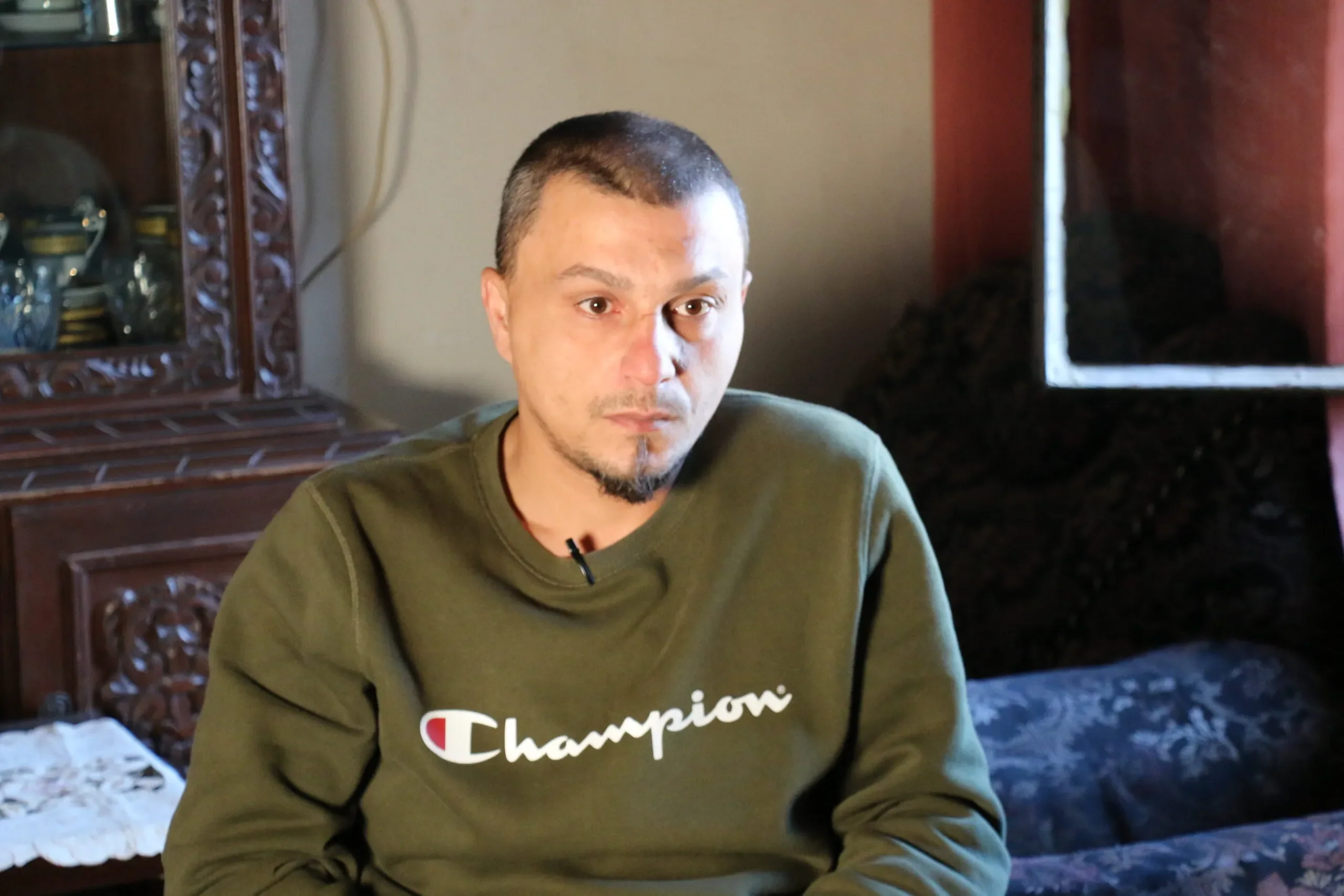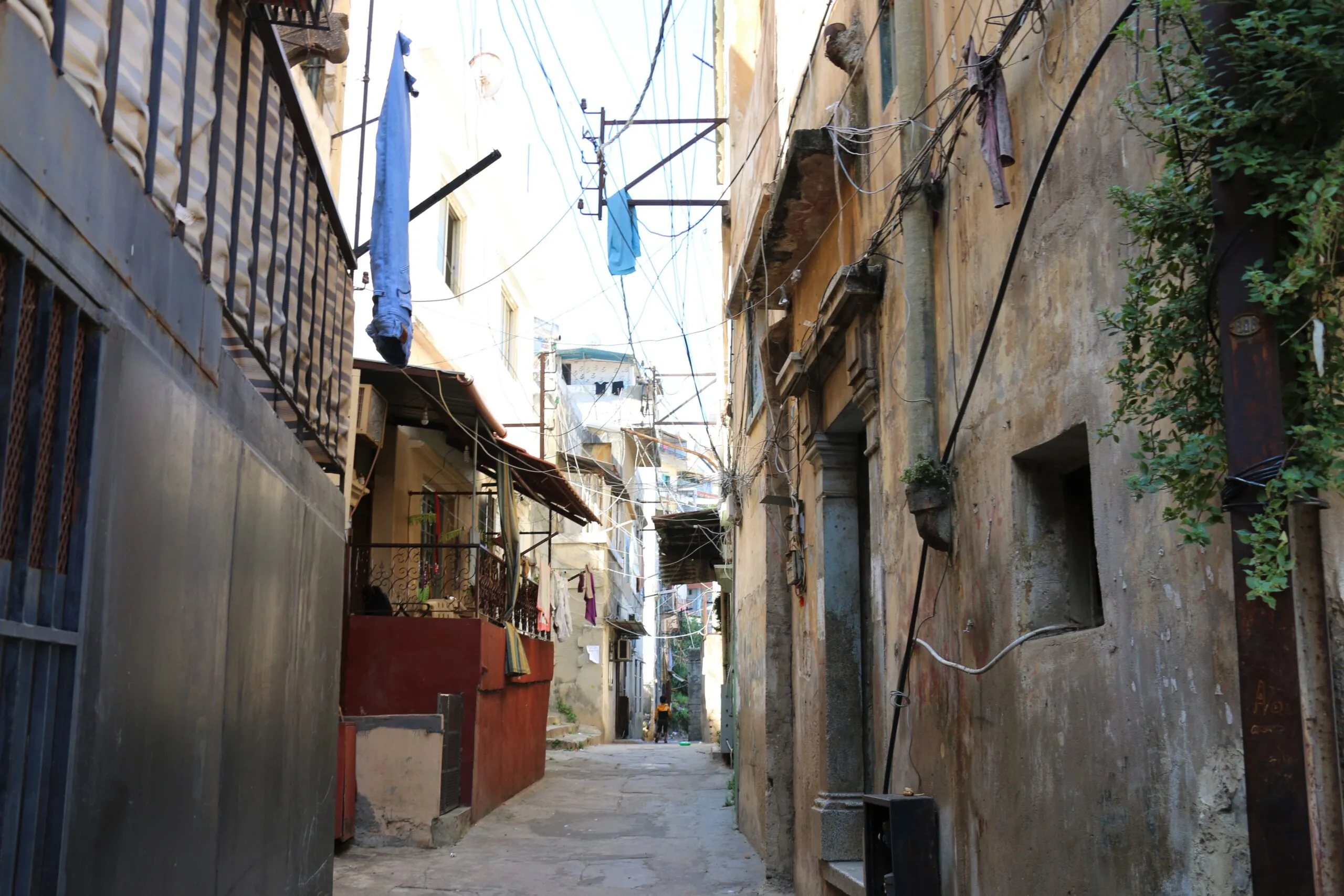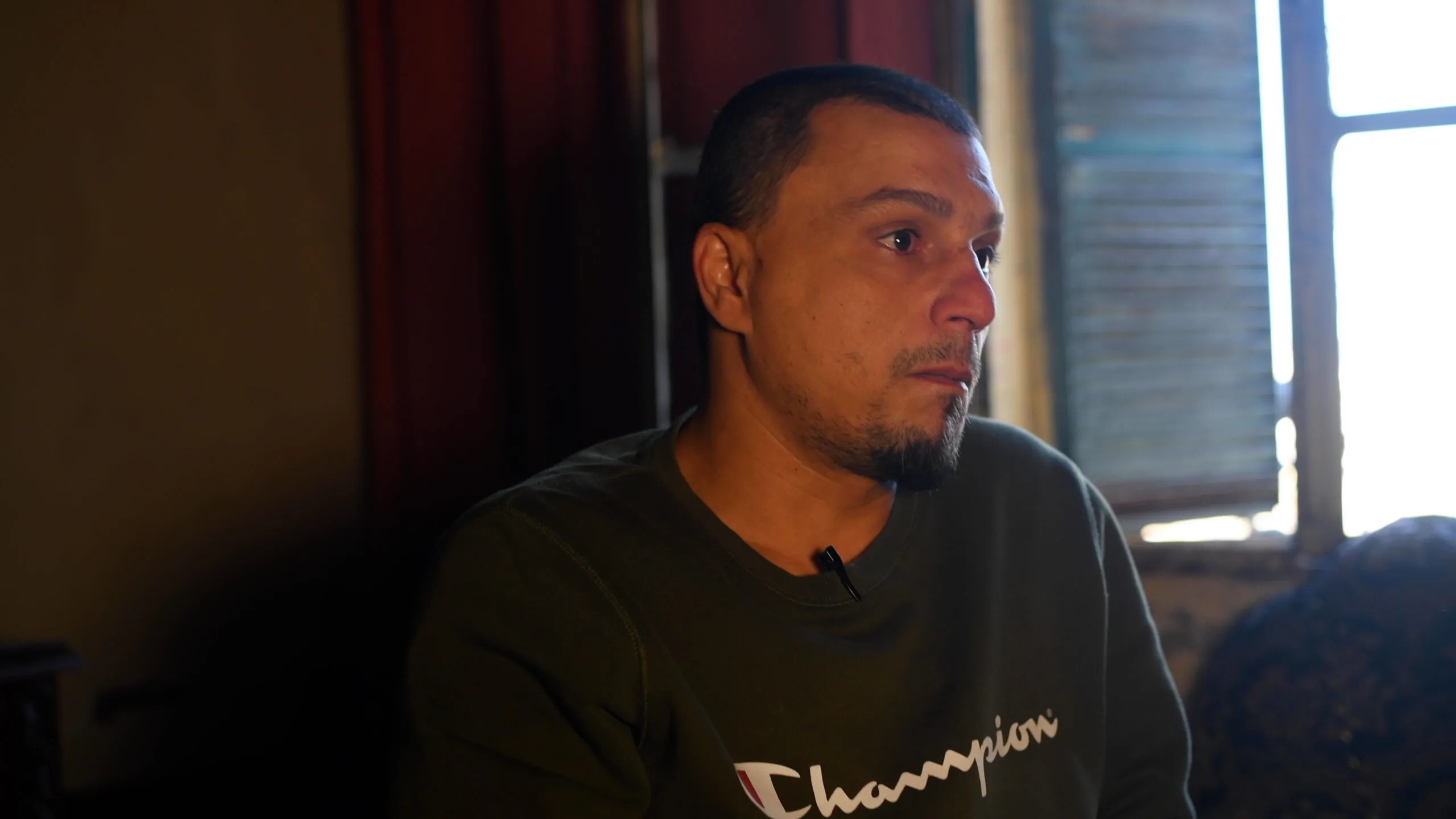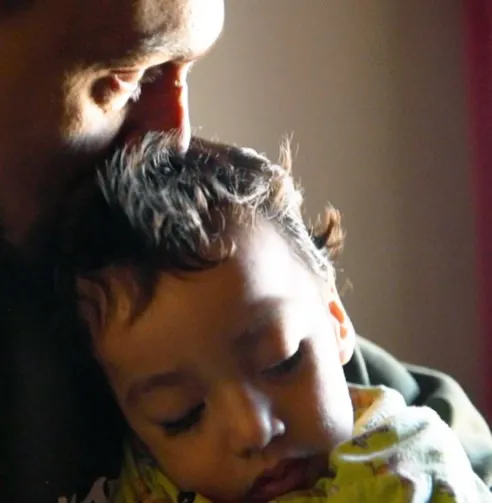We are on our way to meet Taha Taleb, a father of four. Taha and his family have moved in with his 67-year-old mother after he lost his job and could no longer afford to pay rent for his own home. He works two or three days a week as a taxi driver, but the cost to rent the car often exceeds the money he makes driving it.
“In this country if you’re working, you have to work 4-5 jobs to live,” he says.
“To get food, good food. To pay bills.”
Taha’s children, three boys and one girl, are the center of his universe. He knows it’s hard for them, too. Taha’s mother will sometimes scold them if they are playing in the house. “Don’t do this and don’t do that and don’t do this and don’t do that,” he explains.
Taha’s youngest, a three-year-old boy named Muhamad, has been very sick since birth and looks much younger than he is. “One year, one year and a half,” Taha says, confirming his son is very small for his age. “He can’t talk, he can’t walk, nothing.” When he was born, the doctors separated him from his mother for 55 days, saying “maybe he’s going to be living, maybe not. No one knows.” Muhamad suffers from terrible seizures that require regular intravenous treatments. It’s very expensive and forces Taha and his wife to make unimaginable choices.
“If he doesn’t get the medicine, he can shake a lot, and his sleeping… doesn’t work.” Even when Muhamad is awake, Taha says, he is not present, meaning he is listless. “He’s not in this life. It’s gone. If I don’t have the medicine here in the house, and I have a little money, of course, I’m going to go get him the medicine first… [if] I’m not giving the medicine, no one knows, only God, what is going to happen.”




